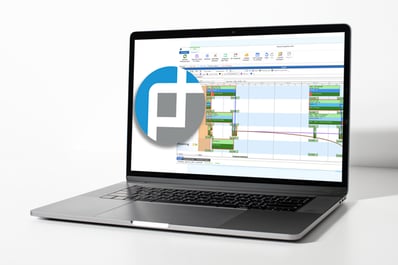Blockchain for Traceability and Transparency
Ensuring traceability and transparency throughout the supply chain is essential. From raw material procurement to final product delivery, every step must be meticulously monitored and documented to meet regulatory standards, ensure product quality, and build trust with customers.
However, traditional supply chain management systems often struggle to provide the level of visibility required in such a complex environment. This is where blockchain technology comes into play, offering a revolutionary solution to enhance traceability and transparency like never before.
As a Supply Chain Manager in a chemical manufacturing facility, you understand the challenges of managing intricate supply chains.
In this blog, we will explore the transformative potential of blockchain technology and its integration with leading Enterprise Resource Planning (ERP), Supply Chain Management (SCM), and Manufacturing Execution Systems (MES) platforms like SAP, Oracle, Microsoft, Kinaxis, and Aveva. Specifically, we will delve into how the integration between PlanetTogether and these systems can optimize supply chain operations while ensuring unparalleled traceability and transparency.

Blockchain Technology
Blockchain, often referred to as a decentralized ledger, is a distributed database that records transactions across a network of computers. Each transaction, or "block," is linked to the previous one, forming a chain of blocks. What makes blockchain unique is its immutability and transparency. Once a transaction is recorded, it cannot be altered or deleted, providing a tamper-resistant record of data.
The application of blockchain in supply chains offers several key benefits:
Enhanced Traceability: By recording every transaction and movement of goods on the blockchain, stakeholders can trace the journey of a product from its origin to its final destination with unprecedented accuracy.
Improved Transparency: Blockchain promotes transparency by allowing all parties involved in the supply chain to access a shared ledger of transactions. This fosters trust and collaboration while reducing the risk of fraud or errors.
Increased Security: The decentralized nature of blockchain ensures that data is secure and resistant to tampering or hacking. Each transaction is cryptographically secured, providing a high level of data integrity.
Streamlined Processes: By automating manual tasks and eliminating paperwork, blockchain streamlines supply chain processes, reducing inefficiencies and costs.

Integration with ERP, SCM, and MES Systems
To fully leverage the potential of blockchain in supply chain management, integration with existing ERP, SCM, and MES systems is crucial. Platforms such as SAP, Oracle, Microsoft, Kinaxis, and Aveva play a central role in managing various aspects of the supply chain, from inventory management to production planning.
Integration with PlanetTogether, a leading production planning and scheduling software, further enhances the capabilities of these systems. By combining the power of blockchain with PlanetTogether's advanced planning algorithms, Supply Chain Managers can achieve real-time visibility and optimization across the entire supply chain.
Here's how the integration works:
Seamless Data Exchange: Blockchain-enabled supply chain solutions seamlessly integrate with ERP, SCM, and MES systems, allowing for the seamless exchange of data between different stakeholders. This ensures that all parties have access to accurate and up-to-date information.
Real-Time Tracking: Through integration with PlanetTogether, supply chain managers can track the progress of production orders in real-time. Every update is recorded on the blockchain, providing a transparent view of the manufacturing process.
Proactive Planning: By analyzing blockchain data in conjunction with production schedules generated by PlanetTogether, Supply Chain Managers can identify potential bottlenecks or delays and take proactive measures to address them.
Regulatory Compliance: Blockchain technology provides a tamper-resistant audit trail that can help chemical manufacturers demonstrate compliance with regulatory requirements. This is particularly important in industries where strict regulations govern the handling and transportation of hazardous materials.
Blockchain technology holds immense potential to revolutionize supply chain management in the chemical manufacturing industry. By providing enhanced traceability and transparency, blockchain enables companies to mitigate risks, improve operational efficiency, and build trust with customers and regulators alike.
Integration with leading ERP, SCM, and MES systems, such as SAP, Oracle, Microsoft, Kinaxis, and Aveva, along with advanced production planning software like PlanetTogether, is key to unlocking the full benefits of blockchain in the supply chain.
As a Supply Chain Manager, embracing blockchain technology and fostering collaboration between different stakeholders will be essential in driving innovation and staying ahead in today's competitive marketplace. Are you ready to take your manufacturing operations to the next level? Contact us today to learn more about how PlanetTogether can help you achieve your goals and drive success in your industry.






















LEAVE A COMMENT